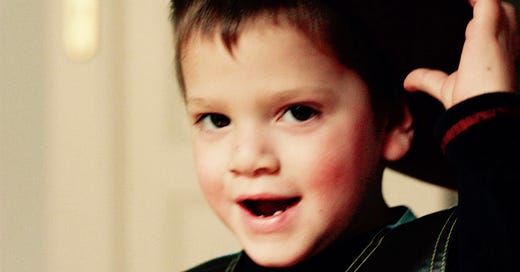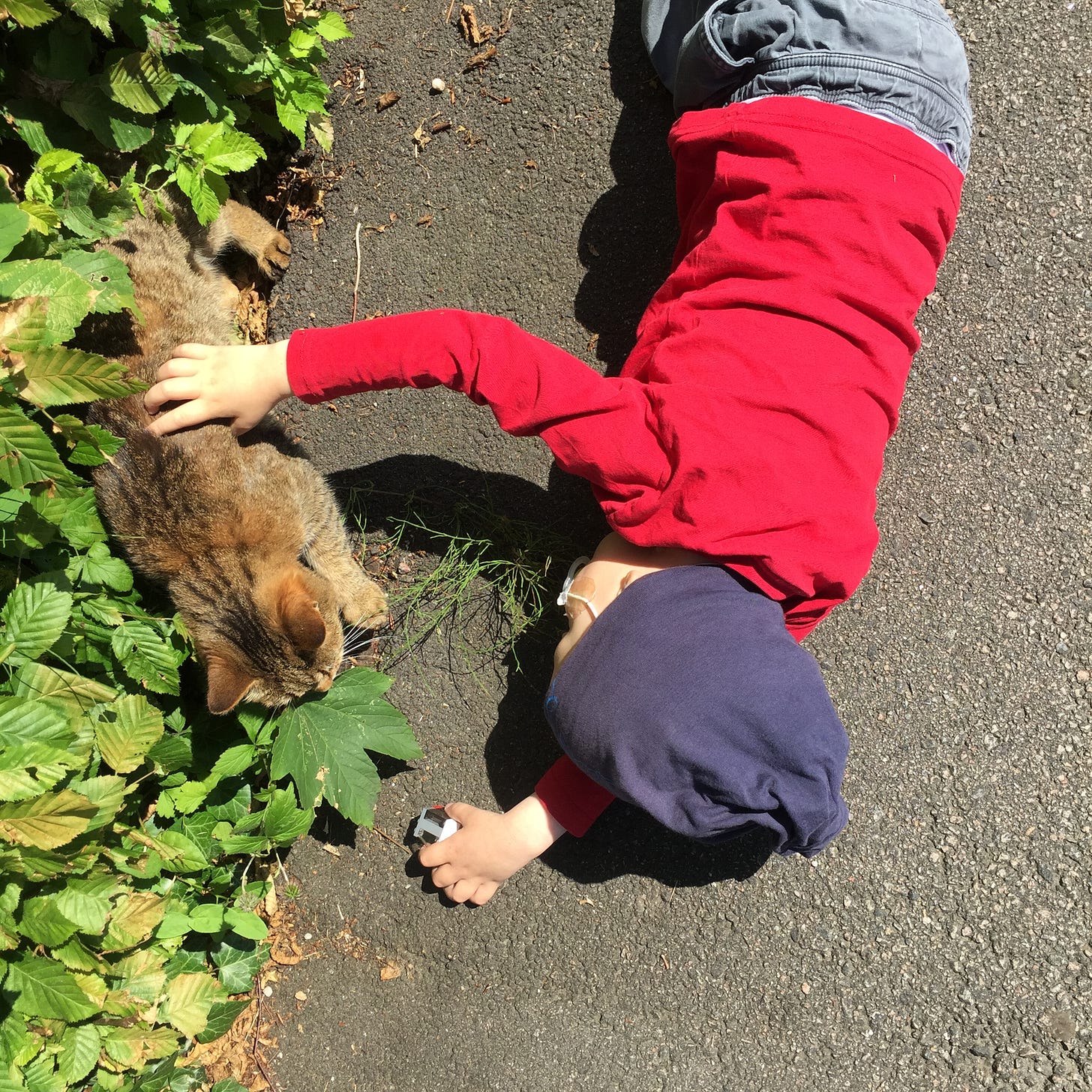A dark hospital room lit only by the faint, pulsing glow of the IV tower, casting slow-moving shadows on the wall like it’s trying not to wake him. The machines hum and beep in irregular rhythms, breaking the stillness only when something’s wrong. He lies there, hugging a brown or blue monkey, searching for something that isn’t quite comfort, but close. Something familiar, at least.
Days bleed into nights and then back into days again. There's no before or after, not really. Just that one moment—that one terrible, precise moment—when a caring doctor says the word “malignant,” and everything after that turns into smoke. The future? It gets edited out. Rewritten as a waiting room. A limbo made of appointments and lab results. Now becomes the only available tense. The calendar shrinks to a set of numbers that mark when the poison starts and when the next scan is due. Holidays don’t exist anymore, unless we’re counting the days between treatments when he can almost feel like a child again.
Our life gets divided into episodes: good stretches, bad stretches. Weeks we almost exhale, days we don’t. Home becomes this elusive, mythical place you visit if the counts are good. The rest of the time, you’re in transit—between hospitals, between test results, between news.
We keep lists now. Meds to give at 8, 12, 6. Dosages adjusted for weight, for nausea, for liver enzymes. Texts between mamma and baba read like lab reports or weather forecasts: “tired, but ate a bit,” “vomited in the afternoon,” “drank 600mls, smiled twice.” We celebrate small victories like meals eaten without protest, pills swallowed without gagging. There are days we stop counting altogether. Those are the good days. The light ones. The bearable ones.
And then there’s the quiet, slow horror of realizing this is his life. Not a chapter. Not a detour. The whole story. The only version of childhood he knows. A life where birthday parties with friends depend on white blood cell counts, where swimming pools are forbidden territories, and where adhesive bandages become emotional anchors he won’t let go of. He loves them. Collects them. Needs them. Not because they heal, but because they’re proof he made it through again. Not that he knows, of course.
The rage comes in waves. At first hot, then low-grade and constant, like background noise in your bloodstream. A wallpaper. You walk around with it stuck under your skin. It's not rage at anyone, not even at the disease anymore. Just the sheer injustice of it all. The helplessness. The absurdity. And the loneliness of watching the world continue on outside while you live in suspended time, waiting for a miracle or a break that may never come.
But here’s the thing. He keeps going. Not just surviving—going. Like a character in one of his endless imaginary battles. He turns everything into a game. Every needle becomes a sword, every side effect a fight with the bad guys. The Green Ninja always wins. The good guys always make it through. Somehow.
He learns how to swallow pills while other kids learn to swing from monkey bars. He hands over his finger for his thousandth blood test like it’s a favor, like he’s helping the nurse. His strength makes you feel small. His joy makes you ashamed of your despair.
And sometimes, late at night, when he’s asleep and the room is quiet again, I think: maybe he knows something we don’t. Maybe he came here for a reason. Maybe he’s here to show us what we forgot—what it means to live without guarantees, without tomorrows, without illusions of safety.
For us, he is everything. Our son. Our compass. Our breath.
But above all, he is love.
A love like no others.
* This is the rewritten version of a blog post first published in The Void on 29 April 2018.







Speechless